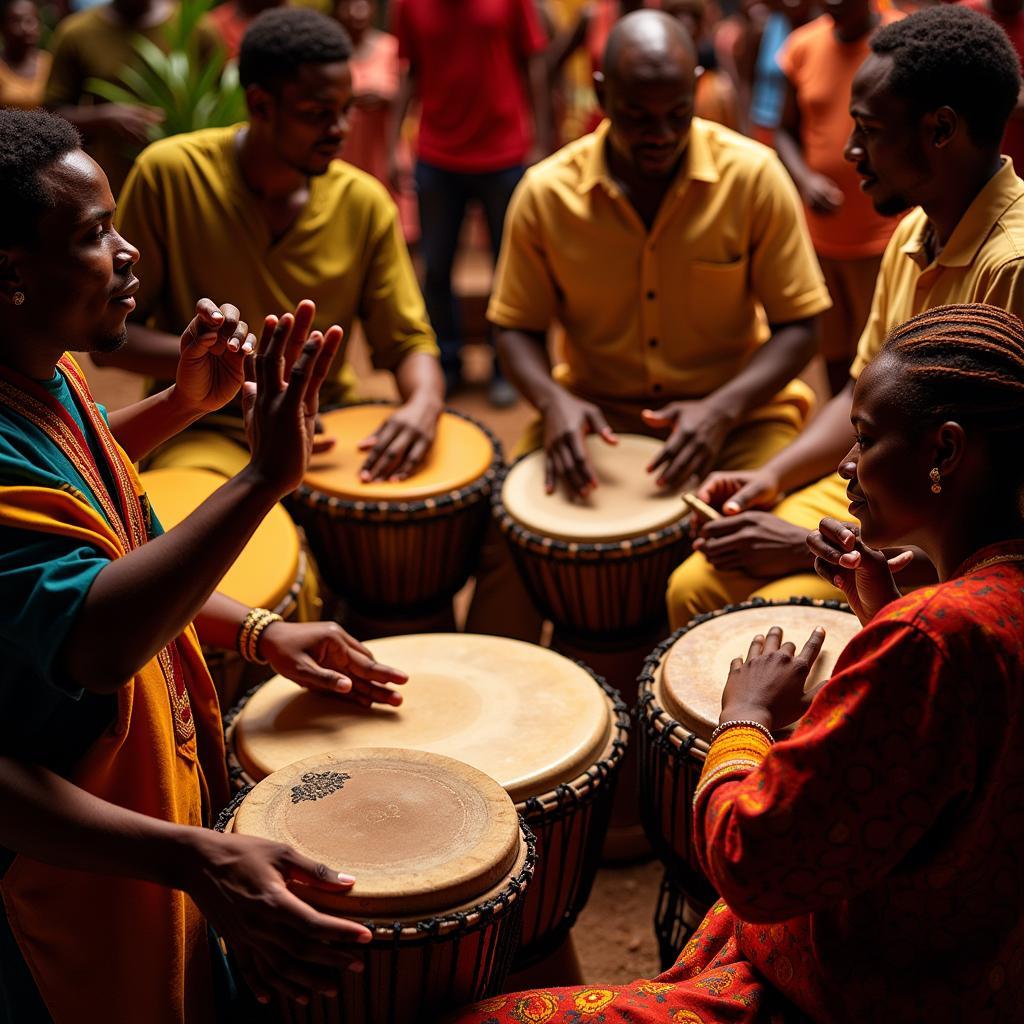A Legacy of Talent: Exploring the World of African American Actors
African American Actors have profoundly shaped the entertainment industry, from the silver screen’s golden age to today’s diverse and dynamic media landscape. Their contributions have not only entertained but also challenged societal norms, sparked conversations, and inspired generations. This article delves into the rich history, challenges, and triumphs of African American actors, celebrating their enduring legacy and impact on cinema and culture.
The Pioneers Who Paved the Way
The early 20th century saw the rise of some of the first African American actors, often facing immense prejudice and limited roles. Despite these obstacles, figures like Hattie McDaniel made history, becoming the first African American to win an Academy Award. These early pioneers laid the groundwork for future generations, navigating a system designed to marginalize them while showcasing their immense talent. Learn more about the 1st Academy Awards for African American.
These early actors often had to contend with stereotypical portrayals, often relegated to roles as servants or entertainers. However, their resilience and determination shone through, using their platform to advocate for change and represent their community with dignity. The struggle for authentic representation became a recurring theme in their careers, a fight that continues to this day.
Breaking Barriers and Challenging Norms
The Civil Rights Movement brought about a shift in societal attitudes, and the roles available to African American actors began to evolve. Sidney Poitier’s groundbreaking performance in “Guess Who’s Coming to Dinner” tackled interracial relationships head-on, reflecting the changing times and sparking important dialogues. This era witnessed a gradual move towards more complex and nuanced characters, allowing African American actors to showcase their versatility and range.
The rise of blaxploitation films in the 1970s, while controversial, offered new opportunities for African American actors to take center stage. While these films often perpetuated certain stereotypes, they also provided a platform for black storytelling and the exploration of black identity on screen.
From Stage to Screen: A Diverse Landscape
Today, African American actors are a vital force in Hollywood and beyond. From Denzel Washington’s commanding presence to Viola Davis’s raw emotional power, their contributions have enriched the cinematic landscape immeasurably. The range of roles they inhabit is vast, reflecting the diversity of the African American experience. They have also ventured into producing and directing, taking control of their narratives and shaping the stories they tell.
You can find many talented African American actors under 20. The achievements of these actors are not just individual triumphs; they represent a collective victory, a testament to the perseverance and talent of generations who fought for recognition and representation.
The Ongoing Fight for Equality and Representation
While progress has been made, challenges remain. The conversation surrounding diversity and inclusion continues, with issues of equal pay, representation in leadership roles, and the fight against stereotypical casting still prevalent. It’s crucial to explore the struggles faced by African American actors who committed suicide, highlighting the importance of mental health and support systems within the industry. The presence of African American actors in popular shows like Game of Thrones demonstrates increasing representation, but the fight for genuine equality is far from over. Exploring the portrayal of interracial relationships, particularly in films featuring African American actors with white actresses in romantic movies, further underscores the evolving landscape of representation on screen.
Conclusion: A Celebration of Talent and Resilience
African American actors have left an indelible mark on the entertainment industry. From the early pioneers who defied the odds to the contemporary stars who continue to break barriers, their stories are a testament to the power of talent, resilience, and the enduring pursuit of equality. The journey continues, and the future of representation in Hollywood rests on the shoulders of these talented individuals and the ongoing fight for a truly inclusive and equitable industry.
FAQ
-
Who was the first African American to win an Oscar?
Hattie McDaniel was the first African American to win an Oscar. -
What was the significance of blaxploitation films?
Blaxploitation films, while controversial, offered more leading roles for Black actors. -
What are some current challenges for African American actors?
Challenges include equal pay and fighting against stereotypical casting. -
Who are some prominent contemporary African American actors?
Denzel Washington and Viola Davis are two prominent examples. -
What is the importance of representation in Hollywood?
Representation ensures diverse stories are told and inspires future generations. -
How has the Civil Rights Movement impacted African American actors?
It led to more diverse and complex roles for Black actors. -
What are some resources for aspiring African American actors?
Organizations like the Black Actors Guild offer support and resources.
For further information on African American actors who have achieved significant milestones, you can explore our articles on the 1st Academy Awards for African American. If you’re interested in seeing how representation has evolved in popular culture, check out our piece on African American actors in Game of Thrones. We also have a poignant article addressing the issue of African American actors who committed suicide. Finally, for a look at evolving portrayals of interracial relationships, you can read our piece on African American actors with white actresses in romantic movies.
Need support? Contact us 24/7: Phone: +255768904061, Email: kaka.mag@gmail.com, or visit us at Mbarali DC Mawindi, Kangaga, Tanzania.



